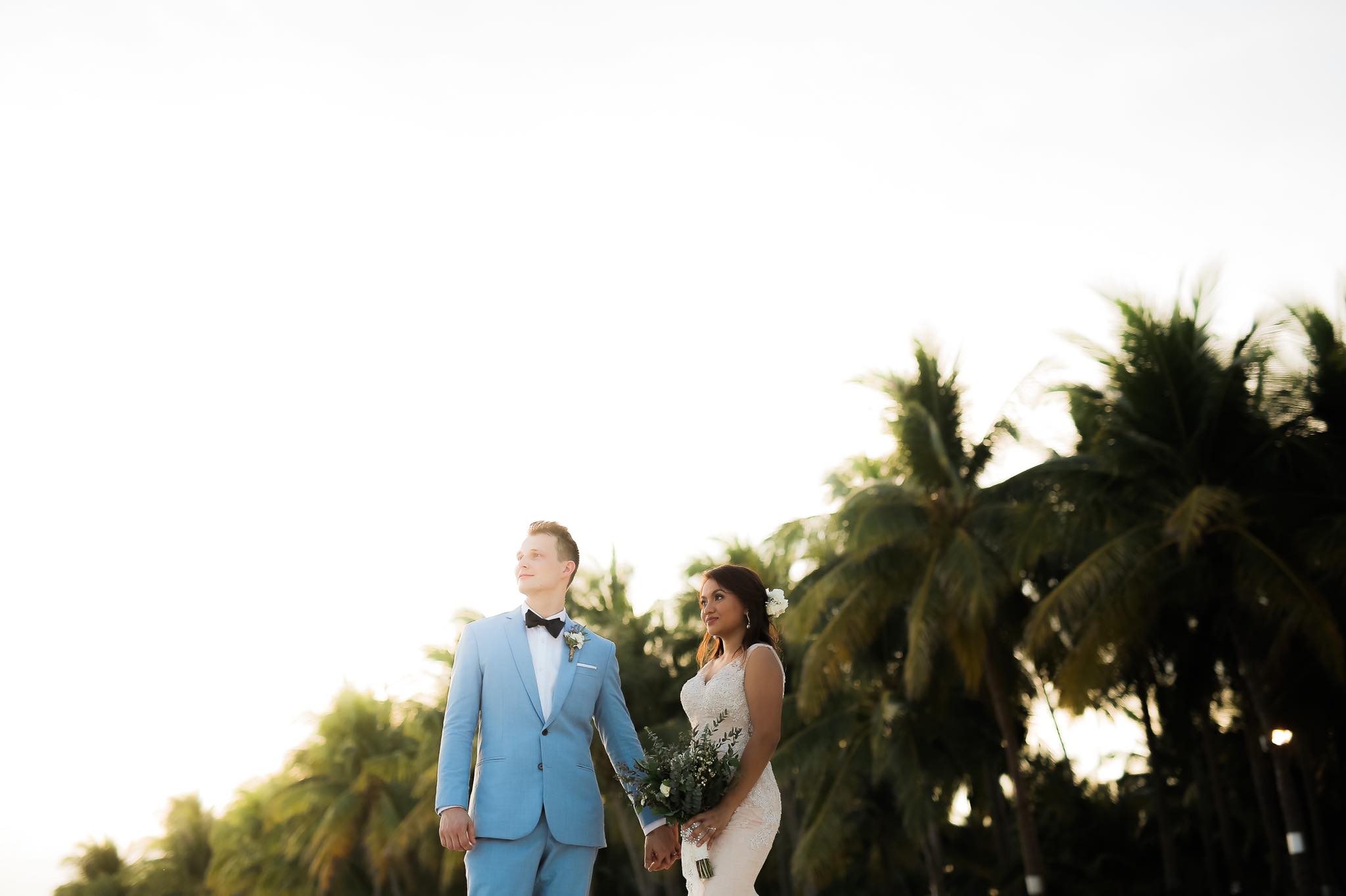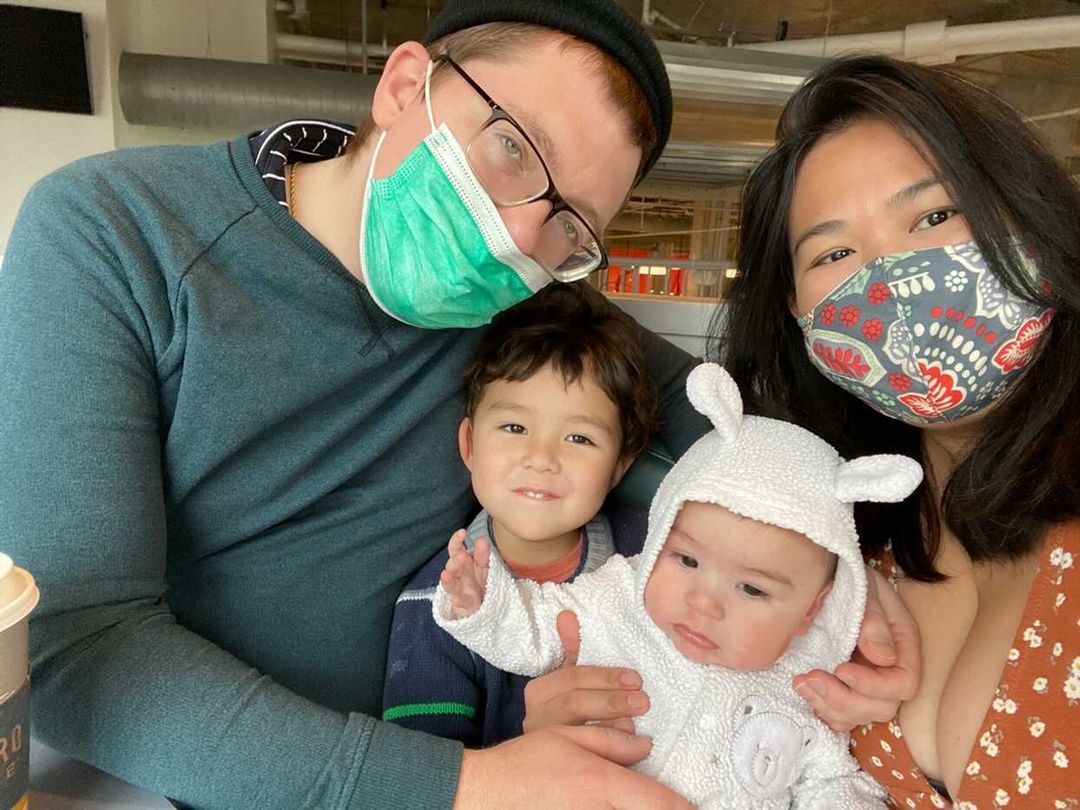Breaking stereotypes and cultural barriers: How can interracial relationships work?
Finding enough common ground between two people who grew up in different cultural milieus, different beliefs, and value systems for a romantic relationship to successfully pan out may just seem like a bunch of hard work on paper.
In addition, there is also the biased perspectives of some Pinoys toward Filipinas who decide to be with a “white” man — an image that plays into the stereotype of the exotic Pinay cozying up with an AFAM as a poverty mitigation measure.
With globalization, interracial relationships for sure are now more common and have gone far beyond dated stereotypes.
For some who have been at it, having and nourishing an interracial relationship just requires a bit of work, just like any other relationship.
Here are two stories of Pinays who have seen through their relationship from the boyfriend-girlfriend stage all the way to the aisle, cultural quirks and differences be damned.
Kriztel and Maik Goetze
Maik: We met in Singapore in 2010, I have been in Singapore for one and a half weeks then. One evening, we met up for drinks with friends. Then 'yun, when she came, maganda siya, sobrang beautiful and I really liked her outfit and her style and her moves and yeah, I was like “wow!” I have to approach this girl who is also very funny and very energetic.
Kriztel: At that time.
Maik: Yes, once upon a time.

Kriztel: We met at the bridge in Singapore in Clarke Quay. Pre-drinks with friends. Literally, he was waiting at the bridge and then dumating ako, so ganung eksena talaga.
Maik: After that I wanted to invite her to go out, but siya “I have to do my laundry.” Paulit-ulit! And I was telling her, “ten times in a week? 20 hours of doing your laundry? Ano ba! Haha!”
Kriztel: At that time I didn’t want my focus to stray from job-hunting. Since he was looking for an internship and I was looking for a job, so the days are free but ayoko nga. Pakipot muna ako saglit.
But literally the first night, he was already super kulit. Ang cheesy nung iba niyang hirit, like if I would say something like, “Oh my god ang init-init naman dito.” Tas ang hirit niya sa akin, “you’re so hot!” Parang, anu ba!
Then every day, he will ask me, “what you are doing today?” Then I will say, “I need to do the laundry.”
PhilSTAR L!fe: Were you wary at that time of having a relationship with a foreigner because of cultural differences?
Kriztel: It was more like, I just didn’t like any relationship at that time. I didn’t know about Germans din. Also at that time, if you’re having a relationship with a foreigner, it’s so different, e. Ten years ago, parang people look at you differently than when you have a relationship with another Filipino.
When I met her, I just saw a nice and sweet person. I didn’t look at where she’s from.
There were hesitations as I wasn’t so sure then. But it took two months, I think. Nagpa-ligaw muna ako haha. What happened was since we were a group in Singapore, we would go out as a group. And then when I went out with him sa park, what he did was he invited me and then he cooked for me, and then ako, “wow parang ang cool naman nito.” That was the first time na a guy prepared food for me. So nakuha pala ako kasi matakaw ako. So he was nice.
But I knew he was leaving back for Germany, so one thing I wasn’t sure of is how the relationship will stay, so we just gave it a try.
PSL: Cultural differences not an issue for you, Maik?
Maik: For me when I met her, I just saw a nice and sweet person. I didn’t look at where she’s from. The only thing sometimes, in the beginning, like one time I was at the mall, tapos, dalawang oras akong waiting, then I was so irritated because after two hours they were still not there! So I guess you just have to get used to it.
Kriztel: Siya na ‘yung nag-adjust.
PSL: When you guys got together, did you ever feel the weight of people judging your from dated stereotypes of the exotic Pinay with the white guy?
Maik: Not really, maybe because we were moving in a circle of friends that were very open.
Kriztel: Also in Singapore, it was common. But with other Filipinos in Singapore, there could be some funny instances. Although no negative experiences.
But maybe before one concern was when we go home to Manila. My family was fine with it, but 'pag 'yung nasa labas ka, how would it be like? Baka ma-classify ka with other Filipinas who would be with foreigners for other things. So medyo cautious on where we would go, but in our immediate circle of friends and family, everyone was just welcoming.
Wary lang but I didn’t experience anything naman. But now, I think people are becoming more tolerant and welcoming and not just clustered into stereotypes.
Ivy and Chris Peters
Ivy Peters: Chris lived in Manila in 2009 while I was mostly abroad working. He has a good friend from college whose parents are Filipino and they decided to live in Manila for fun because they could work anywhere with their online job. I spent most of my twenties living abroad working as a teacher.
I went back home for a friend’s wedding and my nephew’s birth. Then Chris and I met through a friend and we immediately hit it off and started hanging out frequently. To be honest, we don’t exactly know when we became a couple. Chris is the least sentimental person there is so he also doesn’t care when our ‘anniversary’ is. I just remember we both decided to call each other ‘beb’ somewhat ironically and even that felt contrived, so we actually practiced it. Things happened so fast.

Five months after having met each other, his lease was up, and he decided to move out. He was living with his friends then. He asked me to live with him. This was so awkward for me, moving out of my parents’ house to live with someone—and a foreigner. So I actually ‘eased into’ it by sleeping over most days bringing in bags of clothes.
After moving into a new place, Chris realized he couldn’t continue living in Manila because of issues at his job. Basically, he was running out of money. I had a job too but that rarely put a dent in the amount we paid on rent. He decided he had to go back home so he can change careers or even go back to graduate school.
When we were having these conversations, I mentioned jokingly, though I meant it, that when he leaves, it’s over. That we cannot make an LDR work. It wasn’t my thing.
In a very uneventful way, he asked me to marry, no rings whatsoever. I laughed. I thought it was a joke. I realized it wasn’t, so I slept on it. The next day we started plotting how we’re going to do it. How we were going to stay together. We decided that getting married in Manila and me moving to the States is the most logical, practical, and less painful way to do it.
So I guess this was when our ‘citizenship’ came into play. There were legal things to be arranged for us just to be able to stay together. Culturally, I would say we were both a little bit of outliers compared to our peers. We eloped and had a court wedding after 8 months of having met each other. We just had two friends there because it required two witnesses.
Stereotype is based on reality. Usually crusty older white guy like a much younger provincial woman. But it doesn't bother me,
Chris Peters: Ivy’s nationality was never an issue for me, never caused a problem. I don't think her nationality was ever a cause of misunderstanding
Stereotype is based on reality. Usually crusty older white guy like a much younger provincial (woman). Stereotype doesn't bother me, I ascribe to it. I don't like being around such couples especially when Ivy and I are together.
For example, of many, we were somewhere in the north suburbs of Boston at some Filipino event and many of the couples there were stereotype and they invited us to some Pinoy church service and I was just thinking, I would never go to that because I don't want to be associated with these people.
Ivy Peters: Nationality, citizenship, ethnicity, race, they’re all tossed here and then I don’t exactly know which is which
I didn’t care much about being the ‘exotic’ Pinay with a white dude. The ‘exotic’ part is so problematic and even more problematic is that I felt superior over this. I have grown a lot since then but at that time, I felt very strongly and had pride that I wasn’t one of them exotic Pinays because for one, I went to college and wasn’t marrying for ‘a better life’ and that I thought I didn’t fall in the exact category of the ‘exotic Pinay’ looks—usually more morena, wider eyes, etc. Not to mention Chris and I were the same age.
Okay fine, Chris insists that I am older than him. Lol not even a whole year.
He also wasn’t giving me a better life lol he was broke! And our entire game plan with me moving to the states included me immediately having my own job and not depending on him financially.
I guess you could say it bothered me. Because I’ve always felt like I had to prove myself. I was very proud that I had a job waiting for me in the States before I even got there.
Chris Peters: Inter-racial relationship. I don't think there are many challenges to white-Asian relationships in the United States generally. I can't think of many specific examples like our race specifically was an issue. I do think it could be a problem with different races and in different places, especially different countries. For example, I think a black-white couple living in a rural part of the US would face a lot of difficulties due to interracial relationship
I also think interracial couples face issues in most other countries. For all of the USA’s problems (we have many) we are decently accepting of interracial relationships, and the expectation is also to not discriminate towards a race (although many people do still).
Ivy Peters: I want to say we are both more open-minded compared to our (American married to Pinay) peers but I think what sets us apart, well, most of our core values are identical. For example, we were both raised Evangelical Christians but as adults, are both atheists. We don’t care for religion and can even say against it.
Are there challenges because we came from different cultures? There are way more than we realize.
It’s mostly tiny bits of this and that. A significant one I never realized until maybe two whole years in the marriage is that Chris has no idea what ‘tampo’ and ‘lambing’ are. And being the most unsentimental person and then me being Filipino, I mean, aren’t we known for being generally “senti”, the stuff that would come naturally from me because of the ways I have known, they turn into arguments! Even though there are zero intents of that. Like I would just pull a ‘tampo’ and it would end up into a full-blown fight.
Turns out, I’m just as Filipino as any of the ‘exotic pinays’ married to Americans because I had a need for ‘suyo’ event hough my brain could differentiate what is going on and can reason that none of these ‘tampo’ - ‘suyo’ thing is rational.


